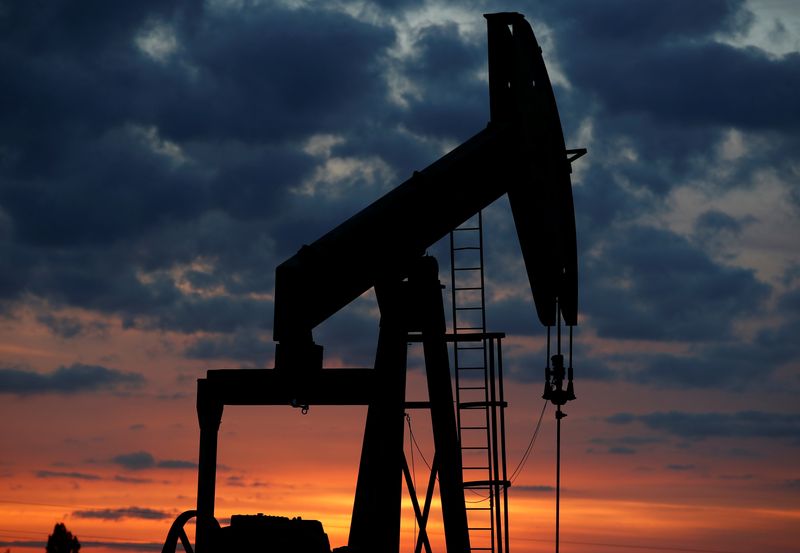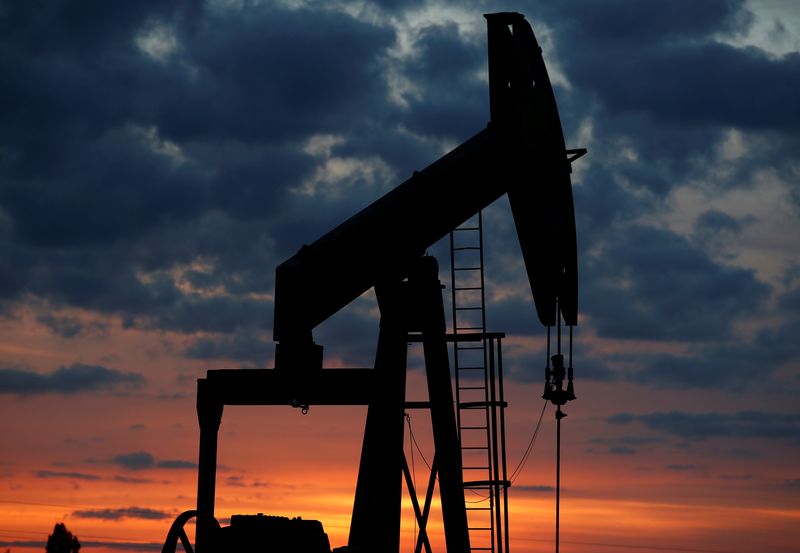Commodities
Oil eases on weak US fuel demand, profit taking

By Nicole Jao
NEW YORK (Reuters) -Oil prices fell on Friday as investors weighed weak U.S. fuel demand and took some money off the table at quarter-end, while key inflation data for May boosted the chances the Federal Reserve will start to cut interest rates this year.
futures for August settlement, which expired on Friday, settled up 2 cents at $86.41 a barrel. The more liquid September contract fell 0.3% to $85 a barrel.
U.S. West Texas Intermediate (WTI) crude futures settled 20 cents lower, or 0.24%, to $81.54.
For the week, Brent rose 0.02% while WTI futures posted a 0.2% loss. Both benchmarks gained around 6% for the month.
While U.S. oil production and demand rose to a four-month high in April, demand for gasoline fell to 8.83 million barrels per day, its lowest since February, according to the Energy Information Administration’s Petroleum Supply Monthly report published on Friday.
“The monthly report from the EIA suggested the gasoline demand was pretty poor,” said Phil Flynn, analyst at Price Futures Group. “Those numbers didn’t really inspire more buying.”
Analysts said some traders took profits at the end of the second quarter after prices rallied earlier this month.
The U.S. personal consumption expenditures (PCE) price index, the Fed’s preferred inflation gauge, was flat in May, lifting hopes for rate cuts in September.
Still, the reaction in financial markets was minimal. For oil traders, the release passed unnoticed, said Charalampos Pissouros, senior investment analyst at brokerage XM.
Growing expectations of a Fed easing cycle have sparked a risk rally across stock markets. Traders are now pricing in a 64% chance of a first rate cut in September, up from 50% a month ago, according to the CME FedWatch tool.
Easing interest rates could be a boon for oil because it could increase demand from consumers.
“Oil prices have been converging with our fair value estimates recently, revealing the underlying strength in fundamentals through a clearing in the fog of war,” Barclays analyst Amarpreet Singh wrote in a client note.
Barclays expects Brent crude to remain around $90 a barrel over the coming months.
Oil prices might not change much in the second half of 2024, with concern over Chinese demand and the prospect of higher supply from key producers countering geopolitical risks, a Reuters poll indicated on Friday.
Brent crude is expected to average $83.93 a barrel in 2024 with averaging $79.72, the poll found.

The U.S. active oil rig count, an early indicator of future output, fell by six to 479 this week, the lowest level since December 2021, energy services firm Baker Hughes said.
Money managers raised their net long U.S. crude futures and options positions in the week to June 25, the U.S. Commodity Futures Trading Commission (CFTC) said.
Commodities
Oil prices rise; U.S. crude inventories plunge, Russia-Ukraine truce eyed
Commodities
India’s Reliance to stop buying Venezuelan oil over US tariffs, sources say
Commodities
Oil prices climb on Venezuela supply worries

 Forex3 years ago
Forex3 years agoForex Today: the dollar is gaining strength amid gloomy sentiment at the start of the Fed’s week

 Forex3 years ago
Forex3 years agoUnbiased review of Pocket Option broker

 Forex3 years ago
Forex3 years agoDollar to pound sterling exchange rate today: Pound plummeted to its lowest since 1985

 Forex3 years ago
Forex3 years agoHow is the Australian dollar doing today?

 Cryptocurrency3 years ago
Cryptocurrency3 years agoWhat happened in the crypto market – current events today

 World3 years ago
World3 years agoWhy are modern video games an art form?

 Commodities3 years ago
Commodities3 years agoCopper continues to fall in price on expectations of lower demand in China

 Economy3 years ago
Economy3 years agoCrude oil tankers double in price due to EU anti-Russian sanctions























